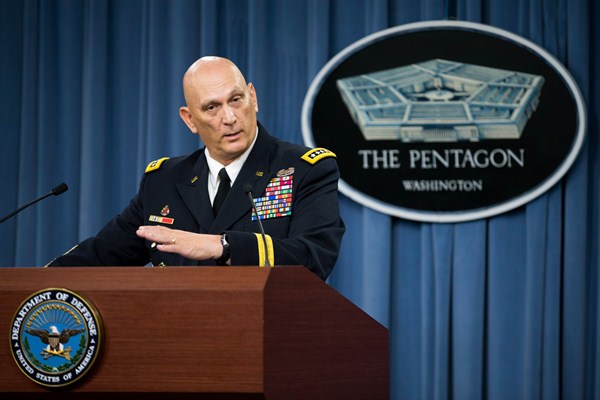Of all the U.S. military services, the Army has the most expansive mission. Because the Air Force and Navy are built around platforms—aircraft, ships, submarines—their functions are determined, in part, by what those things can and can’t do. The foundation of the Marine Corps is the infantryman, but that service’s small size forces it to focus on a relatively limited mission set. Expeditionary operations are the centerpiece, shaping the Marines’ force development, acquisitions, doctrine, training and leadership. Ultimately the Air Force, Navy and Marines can do many things, but their “core competence” is clear. They know what to focus on.
The Army is different. Its ability to do many things, ranging from large-scale humanitarian relief to high tempo combat, has always been one of its selling points. Like all good things, though, this utility can be pushed too far: A case can be made that today America is asking its Army to do too much.
The recent confirmation testimony of Gen. Mark Milley, the new Army chief of staff, provides a window into his service's concerns. According to Milley, the Army is “uniquely capable of winning a decision favorable to the U.S....over any adversary.” That is a very large order, yet saying it was not hyperbole or bravado. It is something the Army takes seriously. Milley went on to identify Russia, China, North Korea, Iran, the Islamic State and violent extremist organizations as the adversaries the Army must prepare to defeat.

